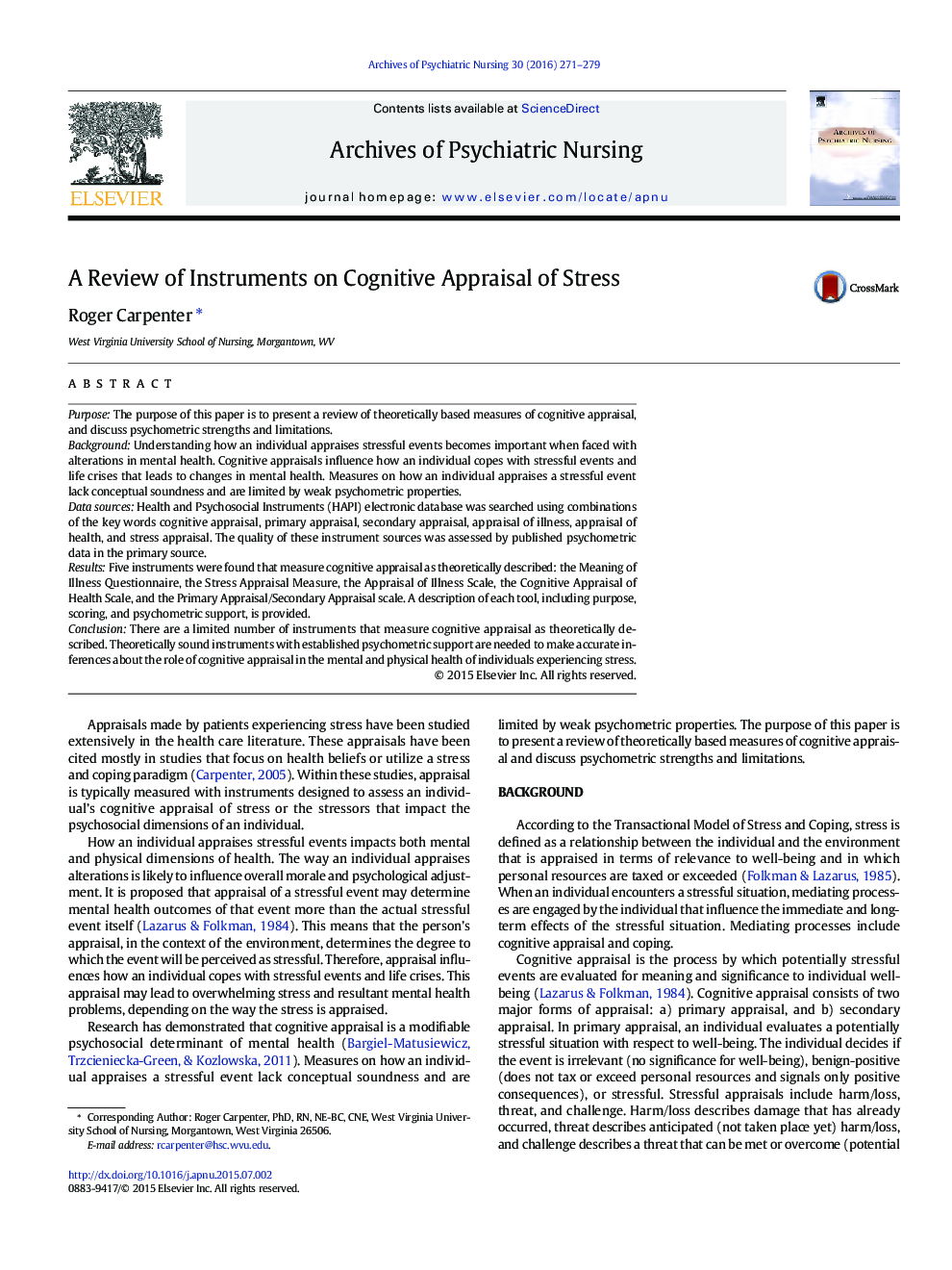| Article ID | Journal | Published Year | Pages | File Type |
|---|---|---|---|---|
| 315617 | Archives of Psychiatric Nursing | 2016 | 9 Pages |
PurposeThe purpose of this paper is to present a review of theoretically based measures of cognitive appraisal, and discuss psychometric strengths and limitations.BackgroundUnderstanding how an individual appraises stressful events becomes important when faced with alterations in mental health. Cognitive appraisals influence how an individual copes with stressful events and life crises that leads to changes in mental health. Measures on how an individual appraises a stressful event lack conceptual soundness and are limited by weak psychometric properties.Data sourcesHealth and Psychosocial Instruments (HAPI) electronic database was searched using combinations of the key words cognitive appraisal, primary appraisal, secondary appraisal, appraisal of illness, appraisal of health, and stress appraisal. The quality of these instrument sources was assessed by published psychometric data in the primary source.ResultsFive instruments were found that measure cognitive appraisal as theoretically described: the Meaning of Illness Questionnaire, the Stress Appraisal Measure, the Appraisal of Illness Scale, the Cognitive Appraisal of Health Scale, and the Primary Appraisal/Secondary Appraisal scale. A description of each tool, including purpose, scoring, and psychometric support, is provided.ConclusionThere are a limited number of instruments that measure cognitive appraisal as theoretically described. Theoretically sound instruments with established psychometric support are needed to make accurate inferences about the role of cognitive appraisal in the mental and physical health of individuals experiencing stress.
